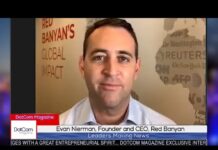RF engineers play a crucial role in the design, development, and optimization of radio frequency (RF) systems and wireless communication networks. These professionals are responsible for designing RF circuits, antennas, and systems, as well as testing and troubleshooting RF hardware and components to ensure optimal performance and reliability. RF engineers work in various industries, including telecommunications, aerospace, defense, automotive, and consumer electronics, where they contribute to the advancement of wireless technologies and the deployment of wireless networks.
RF engineers are highly skilled professionals with expertise in RF theory, electromagnetic theory, microwave engineering, and signal processing. They use their knowledge and expertise to design RF circuits and systems that meet specific performance requirements and specifications. This includes selecting appropriate components, such as amplifiers, filters, mixers, and oscillators, and designing circuit layouts and configurations to achieve desired performance metrics, such as gain, bandwidth, noise figure, and linearity. RF engineers also use simulation software and modeling tools to analyze and optimize RF circuits and systems before prototyping and fabrication.
Furthermore, RF engineers are involved in the design and optimization of antennas, which are critical components of RF systems responsible for transmitting and receiving electromagnetic signals. They design antenna structures, such as dipole antennas, patch antennas, and horn antennas, and optimize their performance characteristics, such as radiation patterns, polarization, and impedance matching. RF engineers also conduct antenna simulations and measurements to evaluate antenna performance in different operating conditions and environments, ensuring that antennas meet design specifications and regulatory requirements.
In addition to design, RF engineers are responsible for testing and troubleshooting RF hardware and components to ensure proper functionality and performance. They use a variety of test equipment, such as spectrum analyzers, network analyzers, signal generators, and oscilloscopes, to measure and analyze RF signals, characterize RF components, and diagnose performance issues. RF engineers also conduct field tests and measurements to validate RF system performance in real-world conditions and identify potential sources of interference, noise, or signal degradation.
Moreover, RF engineers play a key role in the deployment and optimization of wireless communication networks, such as cellular networks, Wi-Fi networks, and satellite communication systems. They design and optimize network architectures, radio access technologies, and coverage plans to ensure reliable and efficient communication services for end-users. RF engineers also conduct site surveys, propagation studies, and network simulations to assess network performance, identify coverage gaps and capacity bottlenecks, and optimize network parameters such as antenna placement, transmit power, and frequency allocation.
RF engineers are essential professionals in the field of wireless communications, responsible for designing, optimizing, and maintaining RF circuits, antennas, and systems. They use their expertise in RF theory, electromagnetic theory, and signal processing to design RF hardware and components that meet performance specifications and regulatory requirements. RF engineers also play a critical role in testing and troubleshooting RF hardware and components to ensure proper functionality and performance. Additionally, RF engineers contribute to the deployment and optimization of wireless communication networks, ensuring reliable and efficient communication services for users around the world.
RF engineers work at the forefront of technological innovation, driving advancements in wireless communication technologies and enabling the deployment of new applications and services. They are involved in research and development efforts to explore emerging technologies such as 5G, millimeter-wave communication, and massive MIMO (Multiple-Input Multiple-Output) systems, which promise to deliver higher data rates, lower latency, and increased capacity for wireless networks. RF engineers collaborate with cross-functional teams of engineers, researchers, and product developers to conceptualize, design, and prototype next-generation RF systems and components that push the boundaries of performance and efficiency.
Additionally, RF engineers play a crucial role in ensuring regulatory compliance and electromagnetic compatibility (EMC) of RF systems and devices. They work closely with regulatory agencies such as the Federal Communications Commission (FCC) in the United States and the European Telecommunications Standards Institute (ETSI) in Europe to ensure that RF systems comply with regulatory requirements and standards for emissions, interference, and safety. RF engineers conduct EMC testing and certification of RF devices to ensure that they meet regulatory requirements and do not interfere with other electronic devices or systems.
Furthermore, RF engineers are involved in the design and optimization of RF front-end modules (RF FEMs) for mobile devices, such as smartphones, tablets, and wearables. RF FEMs integrate various RF components, including power amplifiers, low-noise amplifiers, filters, switches, and antennas, into a single module to minimize size, weight, and power consumption while maximizing performance. RF engineers work with device manufacturers and semiconductor companies to develop customized RF FEMs that meet the performance and cost requirements of specific mobile device platforms.
Moreover, RF engineers play a critical role in the field of RF testing and measurement, developing test methodologies, procedures, and standards for characterizing RF components and systems. They design and build RF test setups and fixtures, calibrate test equipment, and conduct measurements to validate the performance of RF devices under various operating conditions and environmental factors. RF engineers also develop automated test scripts and software tools for data analysis, visualization, and reporting, enabling efficient and repeatable testing processes.
Additionally, RF engineers are involved in the design and optimization of RF transceivers for wireless communication systems, such as radio base stations, satellite terminals, and IoT (Internet of Things) devices. They design RF transceiver architectures, select appropriate RF components, and optimize circuit layouts and configurations to achieve desired performance metrics, such as data rate, range, and power efficiency. RF engineers also work on advanced signal processing techniques, such as digital beamforming, channel equalization, and error correction coding, to improve the reliability and robustness of wireless communication systems.
In conclusion, RF engineers are essential professionals in the field of wireless communications, responsible for designing, optimizing, and testing RF systems and components for a wide range of applications. They leverage their expertise in RF theory, electromagnetic theory, and signal processing to develop innovative solutions that meet the performance, reliability, and regulatory requirements of modern wireless communication systems. RF engineers play a key role in driving technological advancements in wireless communication technologies, enabling the deployment of new applications and services that enrich our lives and enhance connectivity in an increasingly connected world.
















